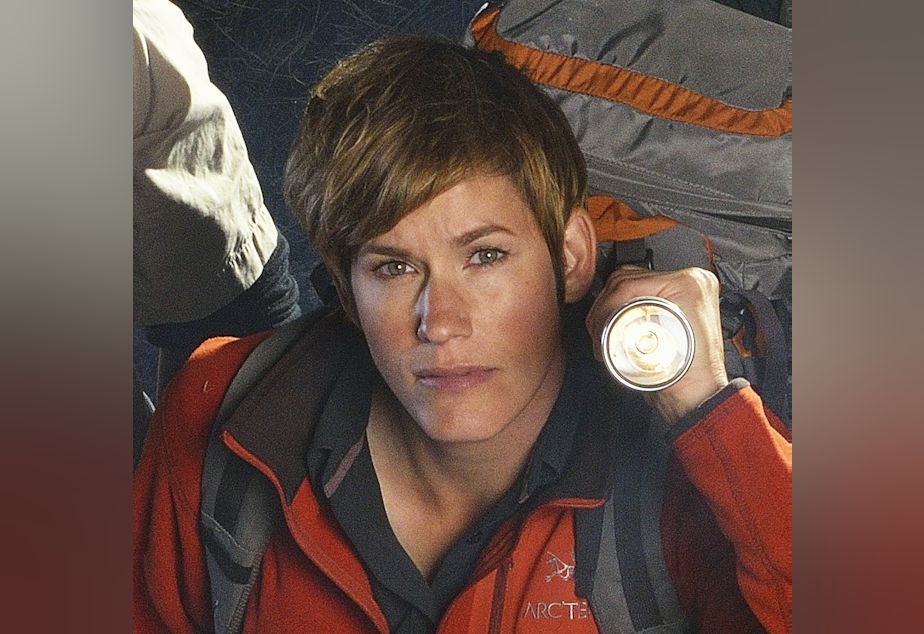A Bigfoot hunter on how to have smart political discourse

Ranae Holland, a host of Animal Planet’s "Finding Bigfoot," had a sense Hillary Clinton wouldn’t win the election.
“I’m a lesbian environmental activist, so I am very Seattle urban archipelago liberal bubble,” she says. “I would come home on a hiatus and everybody’s all, ‘No problem, Hillary’s got this in the bag.’ And I was talking to my friends, ‘You guys, have you left the city limits? Have you talked to any of your folks back in Montana?’"
"Finding Bigfoot" began filming in 2010, and Holland has traveled a lot through rural America since then and she says it was a real wake-up call. She was able to see the anger and feelings of being marginalized outside major cities.
Holland saw a red wave coming and indeed on Nov. 8, it came. Holland is concerned what President-elect Donald Trump will mean for her rights as a lesbian and for environmental protection. But the lessons she’s learned having conversations with people who believe in Bigfoot give her hope that we don’t have to be a divided nation.
“I want to be vulnerable. I want to look somebody in the eye and have a conversation, a sincere conversation,” she says. “I think it’s this mentality of proving someone is right or wrong, it’s black or white, that mentality is what has gotten us to this horrible place.”
Sponsored
She gave an example of a Baptist she met while filming the show. The man was surprised to learn Holland was a lesbian. She was able to have a conversation with him about her sexuality and religion that happened organically.
“I didn’t try to change his mind or his religion. I tried to tell him my experience and why I believe the way I do, without calling him a name or tearing him down,” says Holland. “The conversation can be vulnerable. The conversation can be gracious.”
Bigfoot has taught Holland the power of asking questions. She believes that is the only way that people on the opposite side of any issue, whether it be abortion, climate change, or even Bigfoot, can come together.
“I, as a skeptical scientist, am constantly trying to ask the question, to understand things, not tell somebody what to think, not declare and stick a flag in and put my hands on my hips," Holland says. “I’m trying to bridge that gap.”
Holland doesn’t come from liberal Seattle, however. She grew up in South Dakota reading about the legend of Bigfoot with her father. She was fascinated by the idea of an ape-like creature hiding in the mountains of America. That passion led her to be a host on "Finding Bigfoot."
Sponsored
Holland doesn’t believe the animal is real, which makes her unusual in her world. Holland is a field biologist and believes there is no proof of Sasquatch. She plays the role of the skeptical scientist on the show.
“I love Bigfoot stories. I am curious, so even though I don’t believe it’s real, I love the idea of it,” says Holland.
Holland says her favorite part of hosting the show is the connection that she can make with the people who claim to have seen Bigfoot. But these are delicate conversations for her. She doesn’t want to dismiss the person’s experience but needs stay true to her scientific knowledge. She says she is just trying to understand what happened to them.
“They had this experience and then here I come strolling in and because I have some type of degree or something, or because I’m on a TV show, I get to tell you what happened to you,” says Holland. “Absolutely not.”
Holland wants to be an example of how people who fundamentally disagree on facts, like the existence of a hairy mountain dweller, can show empathy and compassion to one another. She says the lack of these types of conversations is why we’ve become so polarized and has set the stage for the vitriol that has run rampant through our culture.


